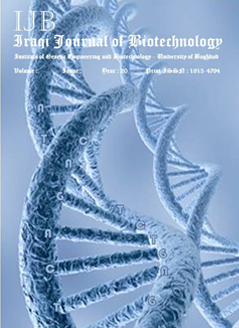Molecular Detection of Enterococcus Surface Protein (Esp) Gene in E.faecalis and E.faecium and their Role in Biofilm Formation
Abstract
Total of (104) urine samples were collected from patients suffering from urinary tract infection with different age groups from five hospitals in Baghdad (Ibn- Albalady, Al Yarmouk, Medical city, Baghdad hospital and Al-Kandy) from the period of the beginning of September to the end of December 2015. All samples were examined by traditional methods based on cultural characteristics, biochemical test and API 20 strep. The results showed the revealed of 50 isolates to Enterococcus and this confirmed by polymerase chain reaction technique based on amplification of species specific genes. PCR were performed for E.faecalis and E.faecium in order to confirm the presence of Esp gene which coding for Enterococcus surface protein using specific primer for gene, the results showed Enterococcus contain a proportion of 54% of Esp. Biofilm production was detected in E.faecalis and E.faecium by use two methods: Congo red agar method and microtiter plate method, our results showed 22(44%) of Enterococcus isolates was strong biofilm production, 25(50%)as moderate and 3(6%) as week biofilm production. By use Congo red method, in microtiter plate method results showed that 20(40%) of bacterial isolates was detected as strong, 26(52%) as moderate and 4(8%) as week biofilm production.


